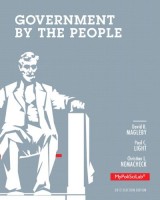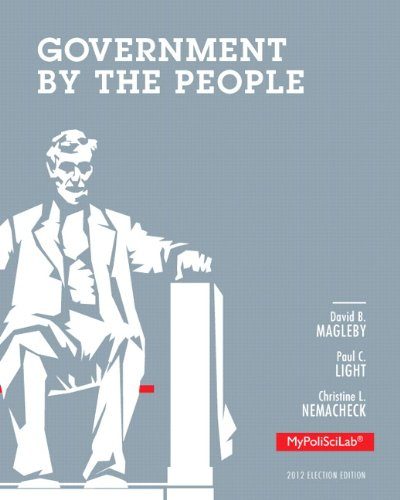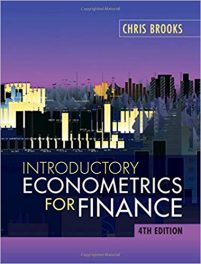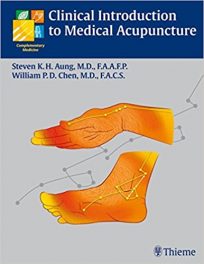 Authors: David B. Magleby, Paul C. Light, and Christine L. Nemacheck
Authors: David B. Magleby, Paul C. Light, and Christine L. Nemacheck
Publisher: Pearson – Education
Book Review by: Sonu Chandiram
An important point is made by the authors in their note To the Student at the beginning of this book. They write: “…our basic rights to life, liberty, and the pursuit of happiness were neither guaranteed by those who wrote our Constitution nor by the citizens who have worked, one generation after another, to expand these rights and set our government’s course.” They assert that it depends on us the people to safeguard these rights as vigilant citizens.
People in one or more of the three branches of our government can reduce or take away our rights and freedoms. Most of us are aware that the current president, Barack Obama, has recently been sued in the Supreme Court by Republicans for allegedly exceeding his powers, by issuing edicts and orders affecting us. They assert that these changes need to be legislated in Congress.
In Government of the People, David Magleby, Paul Light, and Christine Nemacheck provide a comprehensive view of the American system of democratic government based on the foundations established in our Constitutions and the scope of powers exercised by Congress, the Presidency, the Judiciary, and the Federal bureaucracy. They also inform us of the important roles some sectors in society play in placing people in power in those parts of the government.
Political parties formulate their stands, in every election, on various issues of concern to people; interest groups use money to influence members of Congress to pass laws financially favorable to them; the media of mass communication help elect, re-elect or remove government officials in public office.
The authors have used the following framework to present the contents of their book:
Introduction: Government by the People
- Constitutional Principles
- Constitutional Democracy
- Constitutional Foundations
- American Federalism
- The Political Process
- The American Political Landscape
- Interest Groups
- Political Parties
- Public Opinion, Ideology, Participation, and Voting
- Campaigns and Elections: Democracy in Action
- The Media and U.S. Politics
- Policy-Making Institutions
- Congress
- The Presidency
- The Federal Bureaucracy and the Public Policy Process
- The Judiciary
- Rights and Liberties
- Civil Liberties
- Civil Rights
- The Politics of National Policy
- Making Economic Policy
- Making Social Policy
- Making Foreign and Defense Policy
Conclusion: Sustaining Constitutional Democracy
You can avail of several online resources if you are a student or instructor. You can get the assistance available at www.MyPoliSciLab.com. To order this text with MyPoliSciLab, use ISBN 0-205-95008-6. This is an online asse3ssment program that truly engages students in learning. It helps students better prepare for class, quizzes, and exams – resulting in better performance in the course.
And it provides educators with a dynamic set of tools for gauging individual and class progress. MyPoliSciLab comes from Pearson, your partner in providing the best digital learning experiences. Pearson was established in 1844 and it is today the world’s largest publisher of books used in education.
This is an excellent book on American government. This edition takes into account some issues debated in the 2012 Election, such as the government’s soaring and unsustainable level of debt and downgrade of its credit; the dysfunctional Congress; the controversial Obamacare; and the “war” on terrorism.
David B. Magleby is a Distinguished Professor of Political Science and Senior Research Fellow at the Center for the Study of Elections and Democracy at Brigham Young University. He is nationally recognized for his expertise on direct democracy, voting behavior, and campaign finance. Dave is also the recipient of many teaching awards, including the 1990 Utah Professor of the Year Award, the 2001 Rowman & Littlefield Award for Innovative teaching in Political Science and several department and university awards.
Paul C. Light is the Paulette Goddard Professor of Public Service at New York University’s Wagner School of Public Service. He has worked on Capitol Hill as senior committee staffer in the U.S. Senate and as an American Political Association Congressional Fellow in the House of Representatives. Paul is the founding director of the Brooking Institution’s Center for Public Service and continues his research on how to invite Americans to serve their communities through public service.
Christine L. Nemacheck is the Alumni Memorial Distinguished Associate Professor of Government in the College of William & Mary. Her research focuses on judicial selection and the role of the courts in a separation-of-powers system. Chris has received many awards for teaching and research activity, including the Alumni Fellowship Award for excellence in teaching at the College of William & Mary.







